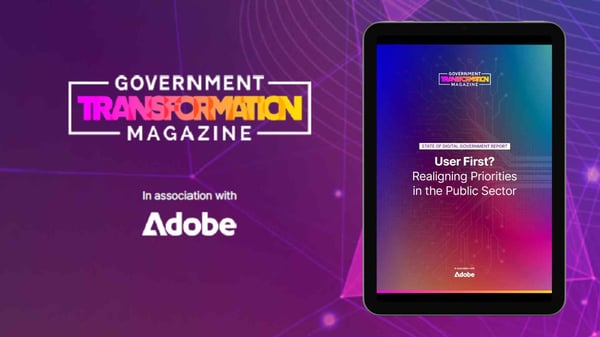Government accelerates Digital Wallet roll-out, calls on tech sector to co-create new services
The Government has issued an open call to technology providers to help shape and deliver the next phase of its GOV.UK Wallet - a new digital platform that will enable citizens to securely store and share government-issued credentials from their mobile devices.
Unveiled this week at a dedicated engagement event hosted by the Government Digital Service (GDS), the GOV.UK Wallet forms a central part of the government’s broader Blueprint for modern digital government, which sets out five key transformation outcomes: improving ease of access to public services, enabling faster business growth, strengthening digital trust and resilience, driving organisational agility, and improving public sector productivity.
 The initiative was set out in more detail in a recent GOV.UK post, in which Natalie Jones OBE, Director of Digital Identity at GDS, described the Wallet as one of the “kickstarter” projects for delivering joined-up, user-centred services that give people greater control over their personal data.
The initiative was set out in more detail in a recent GOV.UK post, in which Natalie Jones OBE, Director of Digital Identity at GDS, described the Wallet as one of the “kickstarter” projects for delivering joined-up, user-centred services that give people greater control over their personal data.
At the centre of this effort is a desire to reimagine how individuals prove eligibility and share personal information across both public and private sector services. The government is asking technology providers to innovate in two specific areas:
-
Data orchestration services, which would enable third parties such as retailers to verify user information (eg. age or entitlement) through secure, consent-driven access to credentials stored in the GOV.UK Wallet.
-
Identity and holder services, enabling providers to create new digital products using verified government credentials, such as reusable ‘derived credentials’ that can be used without repeatedly accessing the core wallet.
These use cases reflect a shift towards a federated model of identity verification, where government-issued credentials can be reused across different contexts — from accessing public services to proving age or identity for private transactions — without compromising on security or user control.
The Wallet builds on the GOV.UK One Login system, which is already used to authenticate access to more than 100 government services. According to GDS, only the individual user will be able to access or share credentials stored in the wallet, with encryption and user consent mechanisms designed to prevent misuse and reduce fraud.
The GDS team has taken inspiration from successful digital wallet implementations in Estonia, Australia, Ukraine, and several US states, each of which has demonstrated the benefits of offering citizens secure, portable access to government credentials.
The government expects the first live credential, a digital veterans card, to launch this summer, in partnership with the Office for Veterans’ Affairs and the Ministry of Defence. A digital driving licence will follow later in the year, eventually offering the same functionality as the physical counterpart.
Importantly, the GDS has stressed that this programme is not about replacing physical documents, but about providing users with the choice to use digital credentials where it is more convenient or secure to do so.
Alongside this, departments across Whitehall are being asked to consider issuing digital verified credentials alongside any new paper- or card-based documentation from 2027 onwards. The long-term aim is to support a “single wallet” experience where everything from qualifications to entitlement letters can be held in one secure app.
GDS has published initial technical documentation and open standards for Digital Verification Services and plans to expand this material over time. Providers are being invited to contribute feedback, co-design solutions, and participate in upcoming technical engagement sessions as the platform evolves.
Natalie Jones described the current phase as the beginning of a longer-term collaboration with the private sector: “We’re building the UK’s first government digital wallet. That’s a complex task, and it’s one that depends on enabling multiple organisations to innovate around it. We want to make it easy for users to prove who they are, and what they’re entitled to, in a way that’s secure, trustworthy, and designed for the real world.”
The government’s challenge now is not only technical, it’s cultural. Delivering GOV.UK Wallet at scale will require sustained partnership with industry, cross-departmental alignment, and continued focus on user needs.






